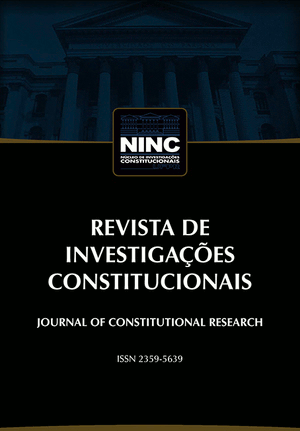Abstract
In Brazilian jurisprudence scenario it is not rare to find a theorical narrative that intents to relate the legal positivism with authoritarian regimes, particularly with Nazism. This argumentation is commonly used to justify anti-formalists legal perspectives, several of them self-identified as neoconstitutionalists, which are, in thesis, methodologically characterized by a strong axiological commitment, by the prevalence of principles over rules and by a certain fluidity concerning legal discuss and application of Law. However, the contemporary legal historiography has defended that the identification between the Nazi normative experience and some legal formalism it is, at least, imprecise, as well as imprecise is the definition of neoconstitutionalism itself. This paper, therefore, it is the result of a theoretical research and aims to critically dialogue with some arguments commonly used to justify neoconstitutionalists postures, especially in Brazil. For that, first, we will look to how the contemporary legal historiography treats the relationship between the normative experience of Nazi-fascism and legal method; then we will look at some problems of some postures typically identified with Brazilian neoconstitutionalism and its relationship with a certain deficit of controllability of decision-making rationales, and its risks.
Keywords:
legal method; anti-formalism; neoconstitutionalism; Nazi-Fasicst Law; non-Law
